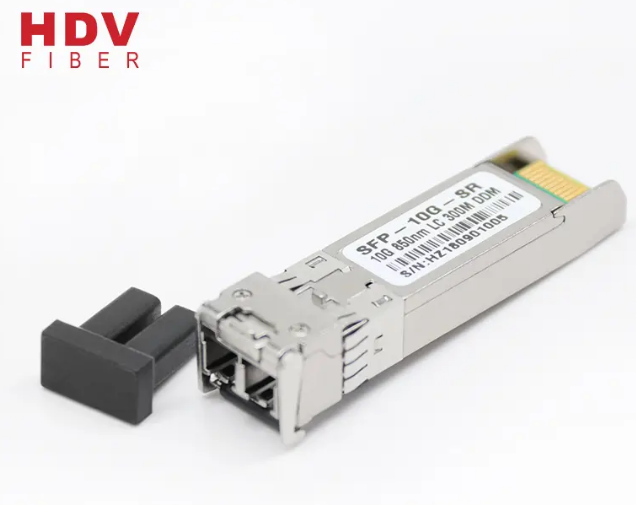What types of optical modules are there?
1. Classified by application
Ethernet application rate: 100Base (100M), 1000Base (Gigabit), 10GE.
The rate of SDH application: 155M, 622M, 2.5G, 10G.
DCI application rate: 40G, 100G, 200G, 400G, 800G or above.
2. Classification by package
According to the package: 1×9, SFF, SFP, GBIC, XENPAK, XFP.
1×9 package—welding type optical module, generally the speed is not higher than Gigabit, and SC interface is mostly used.
The 1×9 optical module is mainly used in 100M, and it is also widely used in optical transceivers and transceivers. In addition, 1×9 digital optical modules are usually used in pairs, and their function is photoelectric conversion. The sending end converts electrical signals into optical signals, and after transmission through optical fibers, the receiving end converts optical signals into optical signals.
SFF package-welding small package optical modules, generally the speed is not higher than Gigabit, and LC interface is mostly used.
GBIC package – hot-swappable Gigabit interface optical module, using SC interface.
SFP package – hot-swappable small package module, currently the highest data rate can reach 4G, mostly using LC interface.
XENPAK encapsulation—applied in 10 Gigabit Ethernet, using SC interface.
XFP package——10G optical module, which can be used in various systems such as 10 Gigabit Ethernet and SONET, andmostly uses LC interface.
3. Classification by laser
LEDs, VCSELs, FP LDs, DFB LDs.
4. Classified by wavelength
850nm, 1310nm, 1550nm, etc.
5. Classification by usage
Non-hot-pluggable (1×9, SFF), hot-pluggable (GBIC, SFP, XENPAK, XFP).
6. Classification by purpose
Can be divided into client-side and line-side optical modules
7. Classified according to the working temperature range
According to the working temperature range, it is divided into commercial grade (0℃~70℃) and industrial grade (-40℃~85℃).
